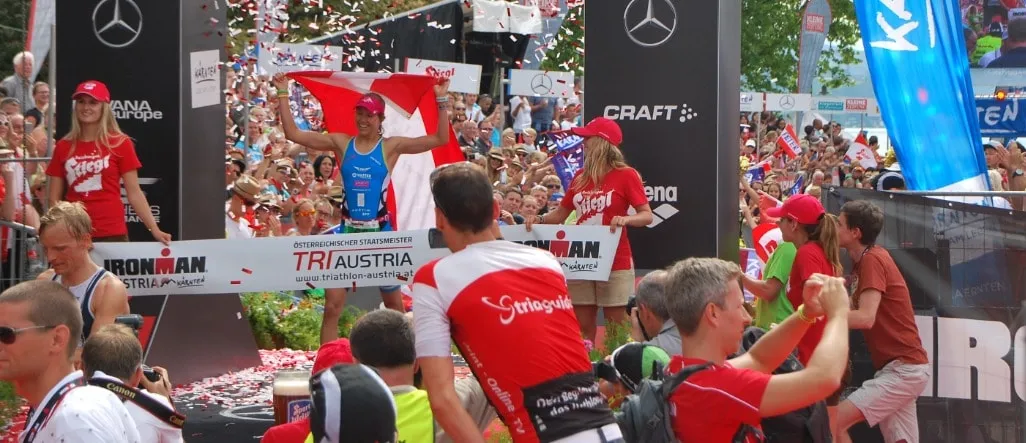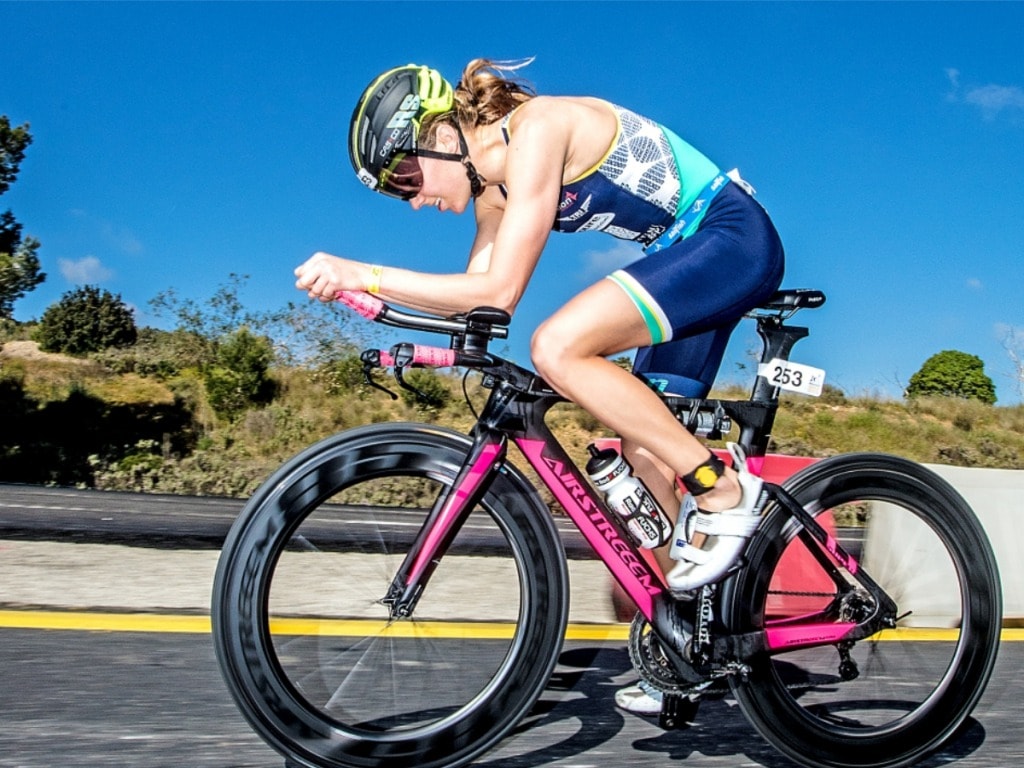
Ironman and other competitions: A chat with triathlete Elisabeth Gruber
Elisabeth Gruber is an Austrian triathlete and sport scientist. She successfully took part in many Ironman competitions - her triathlon experiences had a positive influence on her sports career as well on her personally.
How did you get into triathlon?
I have always been a very active person, and I’ve tried many different kinds of sports. When I first started studying sport at university, I came to know and love triathlon. I knew another student who was a triathlete and I was impressed with the the beautifully defined muscles;) I bought a bike and found myself a trainer. From the go I had the feeling that triathlon was a good fit for me, and that I had a talent for it. Long training sessions, for example, are something that I especially enjoy. From the beginning on, I made improvements every year – I was always upping my goals.
I try to do what I can to have a positive impact on the things I can change, like preparing well and eating the right things
How do you get ready for competitions, for example something like the Ironman?
Usually I do two or three longer distance events per year; those are my “A” races or my main competitions. To get ready, I also start with shorter distances – bigger events help me to divide up my training. I use visualization for the “big” races – I go over what’s going to happen several times in my head, and that way I to feel good during the event, to feel strong. Even though I have already taken part in more than ten long distance events, I’m always excited before a big race. The reason for this is that success in longer events depends on so many factors, many of which one can’t influence. I try to do what I can to have a positive impact on the things I can change, like preparing well and eating the right things.
The anticipation usually outweighs everything else – for me the day of a competition like a holiday. If you’re well-trained, ideally you can deliver a good result in the competition and “enjoy” the race at the same time. I think about all the kilometers that I’ve covered in training – swimming, biking and running – having a quick look at my training journal also helps here. On the big day I give it my all, and I hope that I can make the most of my potential.
You have achieved so much success – how do you handle being successful?
Before I was more of an underachiever and I didn’t believe in myself so much – with success came more self confidence. Success always brings confirmation that “we” are doing the right things; it’s a reward for the many hours of training and the huge level of dedication. By “we” here I mean my team, with whom I can share and celebrate all of my successes. At the same time success motivates me to set new and bigger goals, and to go after them with a lot of energy and commitment.
How do you handle setbacks or “slumps” (like feeling down or hopeless, fatigue) during a competition?
I have picked up a few tricks that I use for such times…they help to get me back on track. When I crash because I haven’t eaten enough, a gel or cola usually helps. Then I concentrate more on my technique, and that distracts me from negative thinking. I try to stay as focused as possible and to think positively. It’s especially true that during longer distance events, one often gets to experience many highs and lows during a race – knowing this makes it easier to just keep going. I did have some Ironman races where there were no lows, but it was still hard at the end.

What motivates you to not give up during competitions?
As an athlete, giving up is only an option for me if I have some kind of physical problem. That’s happened to me twice – once I became hyperthermic while I was on the bike and so I stopped, and in my last Ironman – the European Championships in Frankfurt – I injured my big toe when I was running out of the transition area. I was really disappointed. Training for an Ironman takes a crazy amount of time, and in addition to the time you put in, there’s also the physical effort and money that goes into preparation. Basically, I WANT to finish. I think about my goals and my team that has supported and taken care of me throughout the year: friends, family members, my trainer, training partners, sports therapists, massage therapists, sports doctors, my boss…my team supports me and sweats it out for every race with me. I also want to give something back here.
Goals are important when it comes to motivation – it works best for me if I’m a little bit anxious beforehand.
How do you manage to be so consistent in your training?
Training is part of my everyday life, with the exception of a few days off. I see it as a privilege and I am very thankful that I can take part in this sport. I don’t earn any money doing a triathlon, rather I do it because I love it and it’s so unbelievably much fun for me. I follow my training plan, which is progressively structured – I look at every session as an opportunity to become better. Some days are easier than others, and when it just doesn’t work I adapt to that too – at least I try to give it my best every day.
How important are goals for you? Can you define the value of goals?
Goals are important when it comes to motivation – it works best for me if I’m a little bit anxious beforehand, but I know that I can do whatever it is if I work on it. A big part of this is “dreaming big”. One of my favorite quotes is “If you can imagine it, you can achieve it, if you can dream it, you can be it.”
What do you think about tools, apps and other motivation techniques for helping you stick with your goals?
It’s especially the case for long competitions, the ones that last several hours, that the mental side of things is an undervalued factor that can be decisive when it comes to success or failure. Over time I have incorporated a few good strategies, but there is certainly still room for improvement in this area. Right now I’m only using tools and apps to record and document my training. I don’t have any experience with using them for mental training.